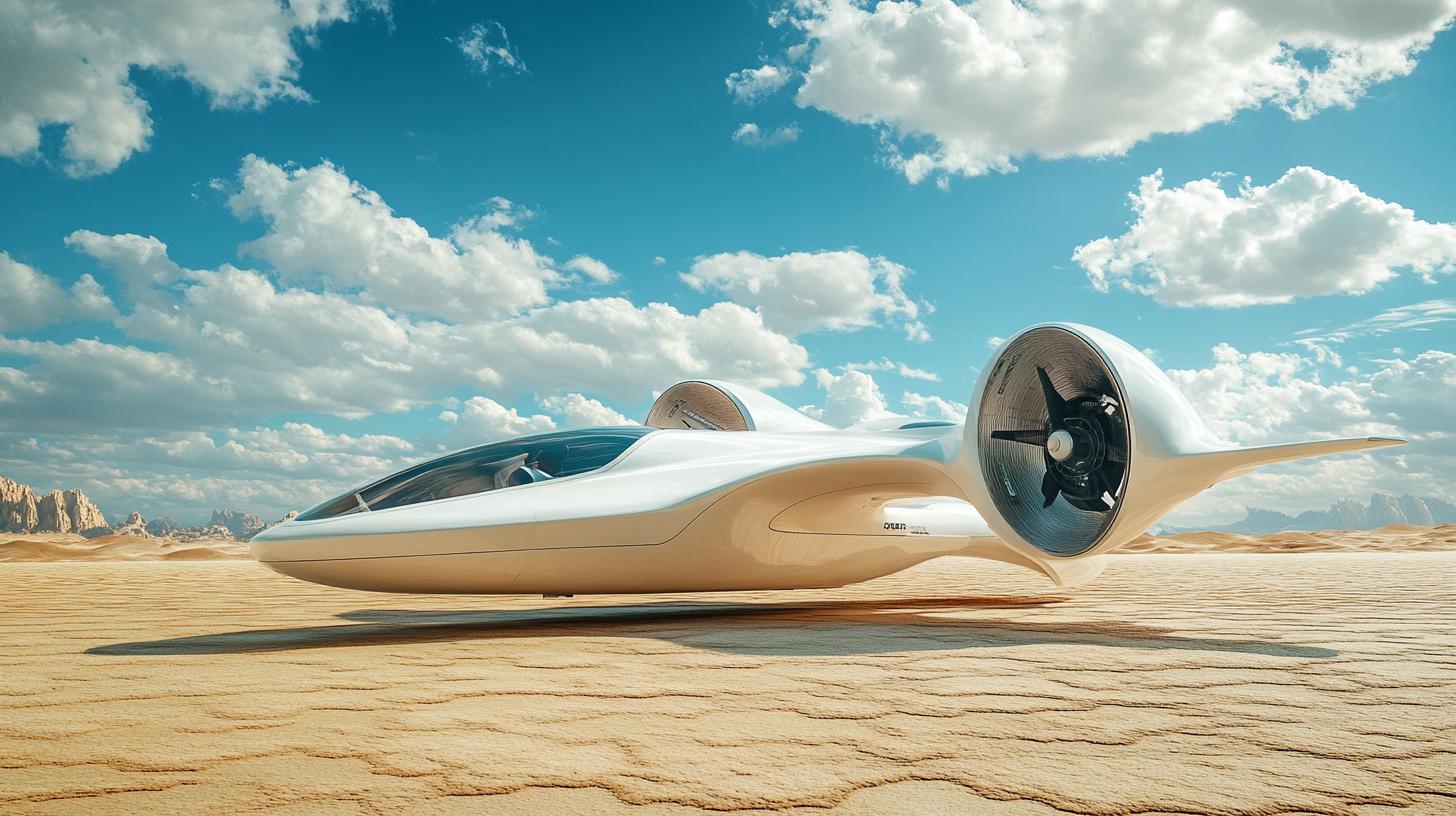Could Flying Cars Transform Arizona?
The bustling roads of Arizona might soon witness a different kind of traffic jam, up above rather than on the streets. The concept of flying cars, once a figment of science fiction, is now edging closer to reality. Arizona Governor Katie Hobbs is spearheading efforts to pave the way for these high-flying vehicles.
State Initiatives and Plans
Governor Hobbs is actively working with the Arizona Commerce Authority to explore the possibilities of making flying cars a part of Arizona’s future. This initiative is not just about adjusting the airspace; it also involves transforming Arizona into a hub for developing this groundbreaking technology. The goal is to make Arizona a leader in the flying car industry by preparing frameworks for licensing what are referred to as “roadworthy aircraft.”
From Concept to Reality
Imagine a world where daily commutes go vertical, reducing the congestion that plagues Arizona’s major highways. The introduction of flying cars could revolutionize personal transport, merge urban and aerial landscapes, and stimulate technological advancements in the state. Although challenges lie ahead, like infrastructure adaptation and regulatory measures, Governor Hobbs is committed to moving forward with bold steps.
The Road Ahead
As Arizona dreams of becoming a haven for flying car innovation, the state must navigate various logistical and legislative paths. With Governor Hobbs at the helm, Arizonans might just witness the skies becoming a part of their daily commute in the not-too-distant future.
Will Flying Cars Revolutionize Urban Mobility?
The possibility of flying cars is not just an idea from a sci-fi movie anymore; it’s a turning point for urban mobility that could redefine city landscapes and boost technological progress. Arizona has taken bold steps toward integrating these futuristic vehicles into everyday life. But what’s happening elsewhere in the world, and what does this mean for humanity and technological development?
Global Developments in Flying Car Technologies
While Arizona might become a trailblazer in the flying car industry, many countries are exploring similar innovations. Companies in Japan, the United Kingdom, and the United Arab Emirates are conducting extensive research to launch their versions of flying vehicles. These countries are investing in cutting-edge technologies such as advanced propulsion systems, autonomous navigation, and lightweight materials that contribute to making flying vehicles safer and more efficient.
Interesting Facts and Controversies
Did you know that the world’s first commercial flying car service might launch in Japan within the next few years? This milestone could transform how urban and regional transport networks operate. However, the concept is not without controversy. The environmental impact of flying cars remains a key concern. Critics argue that while these vehicles may reduce ground congestion, they could increase aerial congestion and contribute to increased carbon emissions unless powered by sustainable energy sources.
Advantages and Disadvantages: A Closer Look
Advantages:
– Reduced Traffic Congestion: One of the most touted benefits of flying cars is the alleviation of traffic jams in urban areas, leading to reduced commuting times and improved air quality.
– Economic Boost: The flying car industry could create thousands of jobs in manufacturing, maintenance, and operations, especially in tech-focused regions like Arizona.
– Urban Mobility: Enhanced transport options could bridge gaps in current infrastructure, making it easier for people to move between remote and congested areas.
Disadvantages:
– Safety Concerns: Ensuring the safety of both passengers and those on the ground is vital. Accidents in the air could have catastrophic consequences.
– Regulations and Legislation: Developing international norms and standards for flying cars remains a huge challenge. Without a global consensus, these vehicles may face limited operational success.
– High Costs: The economic barrier for the average consumer is substantial. Initial models will likely be expensive, perhaps restricting them to the wealthiest drivers.
Critical Questions: What Lies Ahead?
1. How will air traffic control systems adapt to flying cars?
Air traffic management will need to integrate flying cars into existing frameworks, necessitating advanced technologies and possibly new protocols to prevent mid-air collisions.
2. Are electric flying cars viable?
While electric flying cars are being developed to reduce carbon footprints, technological limitations like battery life and power output remain hurdles.
For more information about developments in flying technologies, check out eVTOL.com and Autoevolution.
As these questions and developments unfold, flying cars could indeed shift the gears of technological evolution and global urban mobility. Arizona’s pursuit of this ambitious vision reflects a broader trend toward futuristic mobility solutions that could transform how humans engage with their environments. Time will tell if this leap into the skies becomes an everyday reality or if it remains a concept just beyond our reach.







